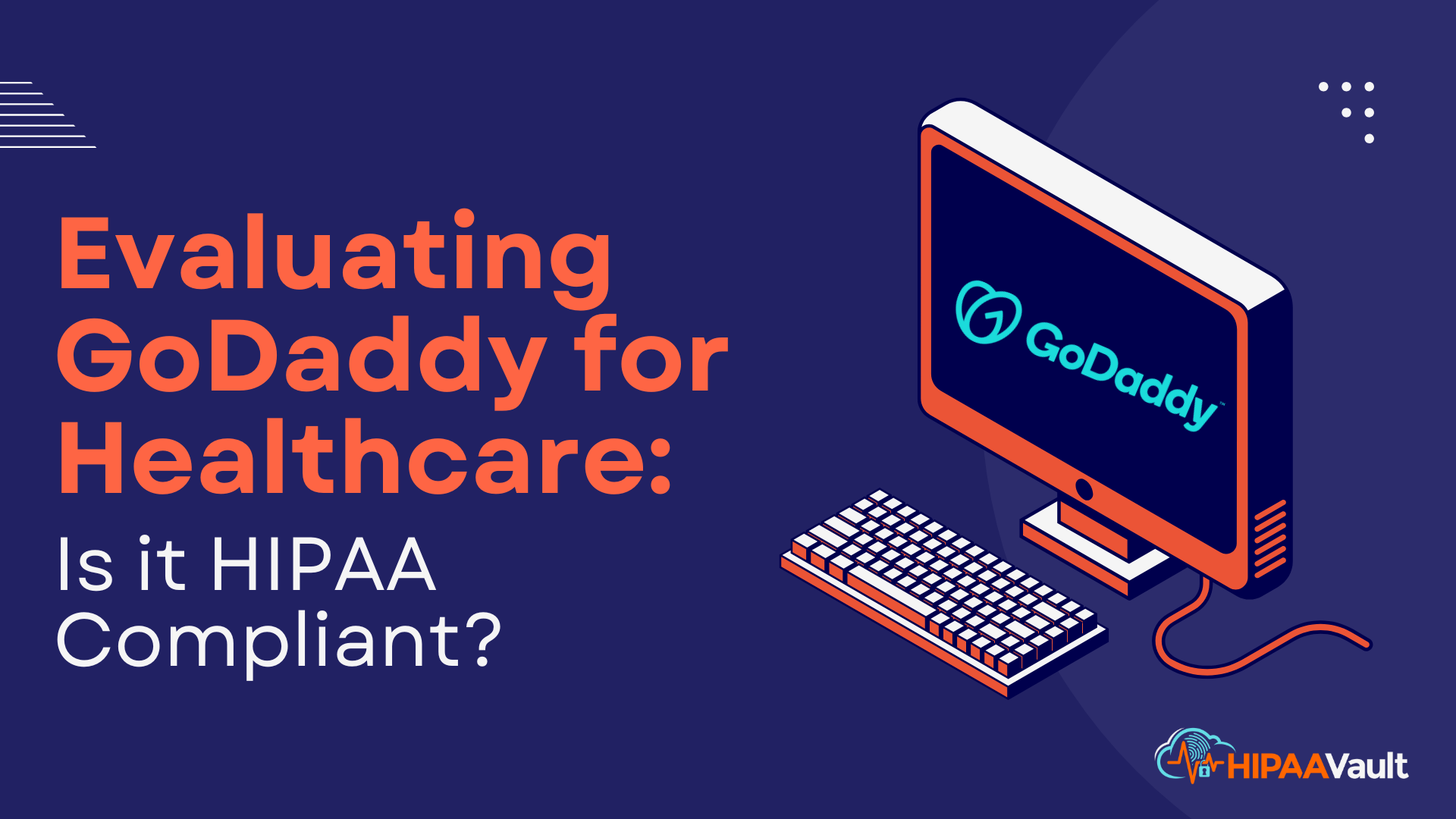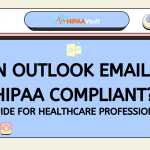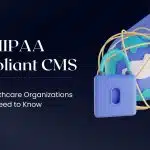
GoDaddy is one of the world’s largest web hosting and domain registration companies. Its affordable plans and easy setup make it a popular choice for small businesses. But when your website handles protected health information (PHI), affordability alone isn’t enough. You need to know: is GoDaddy HIPAA compliant?
HIPAA requires covered entities and business associates to safeguard PHI with administrative, physical, and technical controls. This article examines GoDaddy’s offerings, Business Associate Agreement (BAA) options, and configuration steps to help you decide if GoDaddy can meet your healthcare compliance needs.
is GoDaddy HIPAA compliant
GoDaddy does not advertise a HIPAA-compliant hosting plan or sign BAAs for its standard services. Without a BAA, any PHI stored or transmitted through GoDaddy’s shared or managed hosting would put your practice at risk of non-compliance. In short, out-of-the-box GoDaddy hosting is not HIPAA compliant.
GoDaddy’s Official Stance & BAAs
A Business Associate Agreement is mandatory when a vendor handles PHI on your behalf under HIPAA’s Privacy Rule (45 CFR §164.502). GoDaddy’s terms and support documents do not indicate BAA availability for website hosting or email services. Their standard Customer Agreement makes clear that GoDaddy is not accepting liability for HIPAA-level data protection.
Because GoDaddy does not offer a BAA, the service falls outside the “covered entity” model required by HIPAA. Any vendor without a signed BAA cannot legally assume responsibility for PHI security.
Technical Safeguards on GoDaddy
GoDaddy provides SSL certificates to encrypt data in transit using TLS 1.2 or higher. This protects web form submissions and login credentials from eavesdropping. Their servers support AES-256 encryption at rest for certain plans, but the encryption keys are managed by GoDaddy—not by your organization. Without an explicit HIPAA agreement, you cannot verify whether key management practices meet HIPAA’s addressable safeguard requirements (45 CFR §164.312(e)).
GoDaddy’s shared hosting environment isolates each customer’s account, but shared resources inherently increase the risk of cross-site vulnerabilities. Dedicated or VPS hosting offers stronger isolation, yet still lacks the contractual assurances provided by a BAA.
Administrative & Contractual Considerations
Under HIPAA, you must implement policies for risk assessment, breach response, and workforce training. Even if GoDaddy offered secure servers, you would still need a BAA to document each party’s responsibilities. GoDaddy’s support portal and legal terms do not mention HIPAA or health data. This absence signals that GoDaddy hosting is not designed for regulated PHI workflows.
In a shared-responsibility model, your team would oversee application-level security, but GoDaddy retains control over the underlying infrastructure. Without a BAA, you cannot transfer any infrastructure-level liability to the hosting provider.
Configuration Steps for Compliance
If you choose to use GoDaddy despite these limitations, you must layer additional safeguards:
- Implement End-to-End Encryption. Use a third-party SSL/TLS certificate and enable HTTPS everywhere.
- Enforce Strong Access Controls. Require unique user accounts, strong passwords, and multi-factor authentication.
- Harden Your CMS. Keep WordPress or other platforms updated and remove unnecessary plugins or modules.
- Use Encrypted Databases. Employ application-level encryption (e.g., field-level encryption for PHI stored in MySQL).
- Maintain Audit Logs. Capture and retain logs of all user activity on the website and server.
Even with these configurations, the lack of a BAA remains a critical gap.
Learn more: https://www.hhs.gov/hipaa/for-professionals/security/index.html
Common Pitfalls & Limitations
Relying on GoDaddy’s free SSL alone does not fulfill HIPAA’s encryption requirements for data at rest. Shared hosting plans may expose your site to neighbor attacks—where vulnerabilities in one account impact another. Purchasing higher-tier hosting without a BAA still leaves you contractually exposed.
Many practices make the mistake of assuming encryption and isolation alone equal compliance. HIPAA also demands formal agreements and verifiable controls at every layer, including the infrastructure your site runs on.
Alternatives & Enhancements
For true HIPAA compliance, consider providers specializing in healthcare hosting. HIPAA Vault offers pre-hardened Windows and Linux environments, end-to-end encryption, intrusion detection, and a signed BAA. Their managed service covers email, WordPress, SFTP, and custom apps—ensuring that both infrastructure and application layers meet HIPAA’s standards.
You can also pair GoDaddy domains with a HIPAA-compliant hosting partner. Point your DNS to a secure host while retaining your GoDaddy domain registration. This hybrid approach lets you keep domain management in GoDaddy’s UI without handling PHI on their servers.
Conclusion & Recommendations
Is GoDaddy HIPAA compliant? Not by itself. GoDaddy’s lack of a BAA and its standard shared hosting environment prevent it from meeting HIPAA requirements for PHI. To safely host healthcare websites, you need a provider that offers both technical safeguards and contractual assurances.
If you’re serious about HIPAA compliance, partner with a specialized host like HIPAA Vault. Their turnkey solutions ensure your entire stack—from servers to applications—is configured, monitored, and documented under a BAA.
Need truly HIPAA-compliant hosting?
Partner with HIPAA Vault for pre-hardened environments, signed BAAs, and 24/7 managed security.
https://www.hipaavault.com/are-you-hipaa-compliant/





